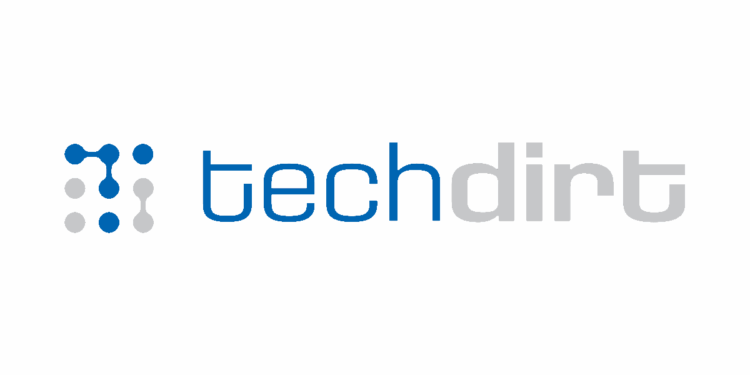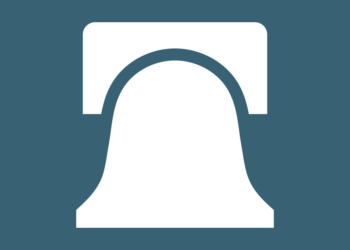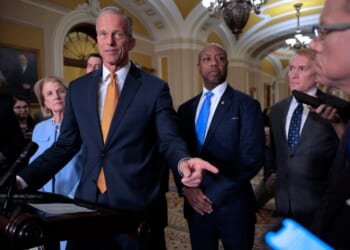from the helping-the-public-by-screwing-the-public dept
Much of the federal government is shuttered, but that’s not preventing the Trump administration from finding new ways to screw over struggling Americans.
Last week, the Trump FCC under Brendan Carr voted to indefinitely suspend efforts to impose new, lower price caps on predatory U.S. prison monopolies that would have prevented them from over-billing inmate families to the tune of hundreds of millions annually. The reforms, which literally took decades of activism and work to pass, were quickly sidelined via a 2-1 vote by the Republican FCC majority.
For decades, journalists and researchers have outlined how a select number of prison telecom giants like Securus have enjoyed a cozy, government-coddled monopoly over prison phone services, resulting sky high rates (at times upwards of $14 per minute at some prisons) for inmate families. States often get kickbacks based on the rates, which has stifled efforts at reforms.
These pampered monopolies have shifted over to monopolizing prison phone videoconferencing. And the relationship between government and monopoly is so cozy, several of these companies, like Securus, have been caught helping to spy on privileged attorney client communications. FCC officials, like former Trump FCC boss Ajit Pai (who also worked to undercut these reforms), previously worked for Securus.
After literally decades of fighting by activists, last year the FCC finally passed new rules putting a cap on the prices that these predatory telecom monopolies can charge. The new rules were finally thanks to the 2023 passage and signing of the Martha Wright-Reed Just and Reasonable Communications Act, which gave the agency clear authority to implement reform.
There’s really no honest defense of weakening the price caps. But Brendan Carr, who originally voted for the new limits last year, has now reversed his position to appease the broader cruelty and bigotry inherent in the Trump administration. In a statement, Carr makes up some completely baseless claims that the caps were causing unforeseen public safety and security issues. From the New York Times:
“Brendan Carr, who was appointed F.C.C. chairman by President Trump and recently suggested broadcasting companies “take action” against the late-night host Jimmy Kimmel, voted last year for the stricter caps, but has now reversed his position. In a statement, Mr. Carr said that the previous order had “negative, unintended consequences” and that the rates were dropped too low “for institutions to properly consider public safety and security interests.”
Again, there is absolutely zero evidence that the price caps had any such effect, but the Times can’t be bothered to mention that. This is being done specifically to aid telecom monopolies by a U.S. government that is increasingly too corrupt to function. Carr obviously can’t be honest about that, so we get this weird pantomime where Carr pretends that coddling corporate power serves the public interest.
Prison phone rates are much lower than they first were in 2013, when the FCC finally began imposing limits on calling rates. But the second Trump administration’s frontal assault on regulatory independence and the rule of law means that most government agencies can no longer pass new rules or enforce most of the ones currently on the books without being bogged down in often-fruitless legal fights.
That means that whatever FCC consumer protection efforts Carr hasn’t been destroying under the guise of “efficiency,” often can’t be enforced anyway. Like in the case of AT&T, which, after a five year legal battle, was recently allowed to wiggle out of all accountability for spying on and selling its customers sensitive location data courtesy of the Republican dominated Fifth Circuit.
Corporations and their covertly-funded Libertarian “free market” think tank friends repeatedly insisted this check on regulatory autonomy was necessary for a long list of made up reasons. But even when Congress carves out very specific legal authority for a regulator to take action (unlike net neutrality), the law is just ignored by the Trump administration.
Again, these are reforms mandated by Congress and broadly, democratically supported, that Brendan Carr simply isn’t implementing because he’s a weird little zealot captured by industry.
Consumer protection has never been America’s strong suit. But we’ve entered a new reality where the federal government is utterly abdicating its responsibility to protect the public, leaving them vulnerable to the kind of unchecked corporate power widespread U.S. corruption lets run amok. It’s still not clear to me that the public, much less the press and policy people, truly understand our new, much crueler reality.
Filed Under: brendan carr, families, fcc, monopolies, price caps, prison, prison phone calls, telecom
Companies: securus













